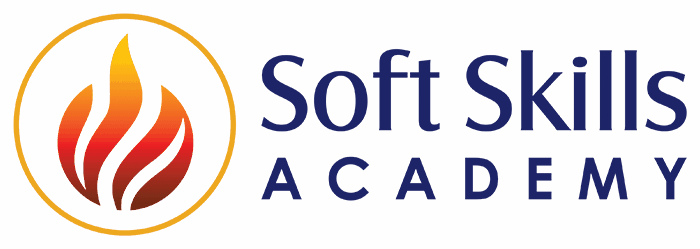The Skills We Undervalue —
and Can’t Succeed Without
Soft skills are the missing ingredient in performance
and trust, and the gap is costing us.
Soft Skills Are Not Optional -
They Are Essential
Soft skills are not optional. They’re essential to how we lead, collaborate, and grow — and they’ve never mattered more.
Most organizations undervalue soft skills. They treat them as intangible, hard to measure, and secondary to technical ability.
Here’s the disconnect:
89% of executives say soft skills are critical. However, only 40%
believe their organization is effective at developing them.
— Deloitte Human Capital Trends (2020)
That gap is where culture breaks down. It’s where performance stalls. And it’s precisely the space The Soft Skills Academy is built to fill.

Soft Skills Drive Leadership,
Culture, and Performance
🧠 Emotional Intelligence
Understand yourself and others to lead with clarity, empathy, and resilience.
🗣️ Communication
Listen actively. Speak with purpose. Adapt across styles and situations.
🤝 Trust & Feedback
Build strong relationships through honesty, psychological safety, and accountability.
🎯 Accountability
Lead with ownership. Hold yourself and others to a precise standard.
👥 Collaboration
Work across teams with shared goals, mutual respect, and consistent follow-through.
You can’t lead without trust — and you can’t build trust without empathy, consistency, and communication. These are the soft skills that separate managers from true leaders.
— Inspired by the leadership
philosophy of Simon Sinek
The High Cost of Neglecting Soft Skills
“We don’t lose people because they’re unwilling. We lose them because the environment doesn’t support who they’re trying to become.”
— Soft Skills Academy Positioning Statement
Organizations that overlook soft skills don’t stay stagnant — they fall behind. Or worse.
The Risks of Neglecting Soft Skills:
⚠️ Low morale and psychological safety
💔 Team conflict and fractured communication
📦 High turnover and disengagement
❌ Missed performance targets and lost trust
These outcomes don’t stem from a lack of technical skill. They come from leadership breakdowns, unclear expectations, and cultures that don't invest wisely in their people.
Soft Skills Matter More Than Ever
Across industries, leaders are asking the same questions:
- How do we attract and keep great people?
- How do we lead in a way that meets today’s younger generations where they are?
- How do we develop our emerging and future leaders?
Today’s workforce — especially younger generations — expects purpose, support, and human-centered leadership. And they’re willing to leave when they don’t get it.
The answer isn’t more pressure. It’s better leadership. And that starts with the skills most teams never discuss, let alone develop.
This is where culture begins. This is what makes strategy stick. This is what separates the average from the exceptional.
Research Highlights
🔹 95% of people think they're self-aware, but only 10–15% are.
— Tasha Eurich, Harvard Business Review
🔹 Six of the top 10 skills identified by employers for 2025 are soft skills — including communication, problem-solving, and emotional intelligence.
— World Economic Forum, Future of Jobs Report (2023)
🔹 Soft skills account for most of the skills gap, especially in leadership roles.
— LinkedIn Workplace Learning Report (2023)
🔹 89% of executives believe soft skills are critical. However, only 40% believe their organization is effective at developing them.
— Deloitte Human Capital Trends (2020)
🔹 Employees with strong, soft skills are 12% more likely to stay with their company long-term.
— Boston College Center for Work & Family
Why Most Training Doesn’t Work — and What Does
Why Many Programs Fail to Deliver
U.S. companies spend over $100 billion annually on training and development.
Despite investing trillions of dollars over the past 25 years, employee engagement has remained stubbornly low, at around only one-third of our people.
The content may be good, and the delivery may be smooth, but most programs focus on one thing: knowledge.
Knowledge alone doesn’t create culture, build trust, or change how people lead.
If we’ve invested this much — why aren’t we seeing more lasting change?
Our approach is different — and deliberately so. Our 3-Stage Model is the foundation of every program we offer:
-
Knowledge
We deliver insight, shared language, and a deeper understanding of soft skills and leadership. -
Application
Participants actively use the tools in real-world situations — not theory, but practice. -
Feedback
We reinforce growth with coaching, reflection, and structured support so change sticks.
This is why our programs work when others don’t.
Ready to Build a Stronger Team, Culture,
and Leadership Pipeline?
Let’s stop settling for surface-level training and build the skills that make a difference.

